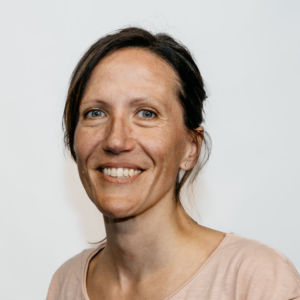At Salvation Army Switzerland, global projects span key areas like WASH, health, education, agriculture, and livelihoods. Silvia Boarini, Project Manager for the Africa region, plays a crucial role in supporting these initiatives by providing tailored resources and training opportunities.
In this interview, Silvia shares her experience leveraging Humentum’s Organizational Training Package (OTP) to equip her partners with the tools and knowledge they need to succeed, offering flexibility, support, and tangible results.
Could you share your experience working with Humentum’s Organizational Training Package (OTP) and how it aligned with your goals?
Overall, the experience was very positive. The support from the Humentum team was great. What stood out for us was the flexibility of the package. It allowed us to purchase a certain number of spots across a variety of training courses—15 spots in total. This gave our partners the freedom to assess their own needs and sign up for courses that aligned with their priorities.
For example, we didn’t need to limit ourselves to just one course, like project management. Instead, partners could choose what their teams needed — whether it was project management, finance or MEAL three spots for project management. This flexibility enhanced the support we could offer.
Are there any other aspects of the package that stood out to you?
Yes, several things stood out.
First, everyone received the same training, which helped standardize processes across teams. For instance, using the same materials and templates, such as the theory of change, meant everyone was on the same page.
Second, the training manuals were downloadable, and we even printed and shared a few. This allowed participants to refresh their memory whenever. It is not easy to retain all the information from a training course, so having those resources available was a big plus.
Finally, the package’s year-long duration gave us enough time to make full use of it.
But flexibility was the most important factor that made it work for us.
Was language availability a factor for your teams?
Yes, it was. English was the main language we used, but we’re hoping more French-language trainings will become available next year. That would likely encourage us to purchase another package. While some participants may have taken courses in Spanish or Portuguese, I believe most opted for English.
Have you noticed any impact on partner organizations or internal processes after completing the courses?
Definitely. The shared language and tools across teams have been beneficial. For example, when designing a project, everyone can now refer to templates and frameworks like the theory of change, results framework, or log frame.
Of course, the training serves as an introduction—some partners may have been unfamiliar with project management or MEAL concepts before—so it takes time to fully absorb and apply these tools. But the training raised awareness about why certain methods work better than others. Familiarity will grow over time as people continue to use these tools in their work.
You mentioned sharing the list of courses with partner organizations and letting them choose what they needed. Can you expand on how that process worked?
Humentum’s OTP gave us 15 spots, which we made available globally since we work in regions like Latin America, Africa, and Asia. We shared Humentum’s course descriptions and schedules so participants could see which courses interested them and fit into their timelines.
Humentum provided an Excel sheet that made it easy to track registrations.


